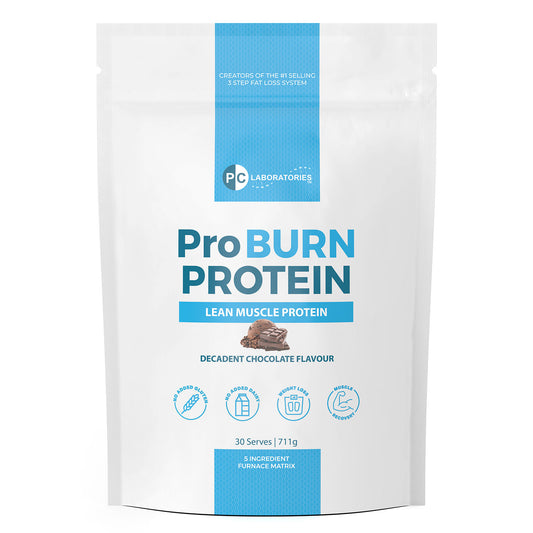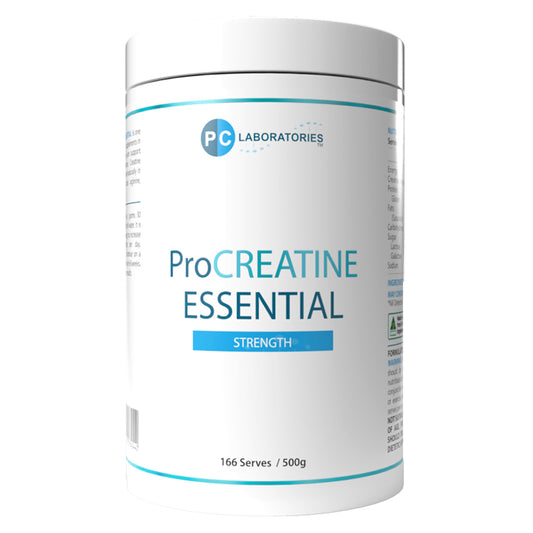Caffeine, Stress And Your Adrenals: Friend Or Foe?
Caffeine is the go-to energy boost for millions of people worldwide. Approximately 75% of Australians drink at least one cup of coffee daily. Whether it's that first cup of coffee in the morning or an energy drink before a workout, caffeine is deeply embedded in our daily routines.
How does our increasing intake of caffeine interact with our stress levels and adrenal function? And is it always the culprit when we're feeling burnt out? Coffee (and other caffeinated beverages) can cop the blame for high cortisol and elevated anxiety. There is a way to have your cuppa and drink it too.
Let's delve into how caffeine affects our bodies and the optimal amounts to consume. The trick to enjoying your morning cuppa joe could be better stress management. We’ve created the ultimate caffeine guide for daily resilience and energy levels that last all day.
How Caffeine Affects Your Adrenals
Caffeine stimulates the central nervous system, leading to increased alertness and energy. It achieves this by blocking adenosine receptors, which promote relaxation and sleepiness. As a result, the body releases stress hormones like cortisol and adrenaline, preparing us for a "fight or flight" response.
While this can be beneficial in short bursts, chronic stimulation can overtax the adrenal glands, leading to elevated cortisol levels. Over time, this can disrupt the body's natural stress response and contribute to feelings of anxiety, fatigue, and burnout.
How Much Caffeine Is Too Much?
The key isn't necessarily caffeine itself but the amount consumed. For most healthy adults, up to 400 mg of caffeine daily is considered safe and doesn't pose significant health risks.
Here's a breakdown of caffeine content in common beverages:
Beverage Average Caffeine Content
Red Bull (8.4 oz) 80 mg
C4 Energy (16 oz) 200 mg
Barista Coffee (8 oz) 70–140 mg
Green Tea (8 oz) 30–50 mg
Black Tea (8 oz) 40–70 mg
Instant Coffee (8 oz) 30–90 mg
Note: Caffeine content can vary based on brand and preparation method.
It is important to judge your caffeine intake for yourself, as everyone has a different tolerance. Caffeine has a half-life of approximately 4-5 hours. This is not set in stone, with genetics meaning some people can take twice that time. Certain individuals metabolise caffeine faster due to variations in their CYP1A2 enzyme, responsible for caffeine breakdown.
When to Cut Back on Caffeine
If you're experiencing symptoms like fatigue, irritability, difficulty sleeping, or heightened anxiety, it might be time to assess your caffeine intake. Reducing consumption can help recalibrate your body's stress response and support adrenal health. There are times when it can be wise to cut back or eliminate caffeine for a time, such as:
1. Signs of General Adaptation Syndrome (GAS)
Chronic stress can lead to General Adaptation Syndrome, a process that results from a dysregulation of cortisol and stress hormones. The body changes when responding to stress, and persistently high cortisol cannot be maintained. The body starts to produce less cortisol, or more at the wrong times of day (hello, sleep deprivation). The 3 stages are:
Alarm: Initial stress reaction that occurs shortly after an incident. It triggers the "fight or flight" response, and a release of cortisol and adrenaline. You may feel your heart rate accelerate, muscles tense, body temperature lower, and you sweat more.
Resistance: The body attempts to adapt to the ongoing stressor. If the stressful event continues, the hormonal changes from the alarm stage continue to keep you in a state of alert. As a result, you may experience increased glucose levels and higher blood pressure.
Exhaustion: Prolonged stress leads to depletion of energy reserves, resulting in burnout. In this stage, your body’s resources are depleted after attempting to repair itself during the resistance stage. This is when we feel truly wiped out, often experiencing Persistent fatigue, poor mood balance, sleep disturbances and decreased immunity.
2. Digestive issues
Coffee and caffeinated drinks can speed up peristalsis (when our gut contracts) as a result of an increase in adrenaline. This can result in stomach pain, cramping, a sometimes a quick run to the loo! Pause the coffee, or switch to decaf and sort out your gut first. ProGlutamine Essential helps to heal the gut lining and reduce digestive discomfort.
3. Pregnancy or Breastfeeding
Caffeine passes through to the placenta during pregnancy and then into the breastmilk postpartum. This can cause digestive issues and sleep disturbances in infants, and a jittery feeling for the mum. Stick to a maximum of 200 mg of caffeine daily.
Benefits of Moderate Caffeine Intake
Aussies certainly love their coffee and tea! The delicious taste and having a catch-up with friends over a brew make it a popular pastime. Moderate caffeine intake offers several benefits:
- Enhanced Physical Performance: Caffeine can improve endurance and reduce perceived effort during exercise. 100-200 mg before training can give you the energy to train harder and focus on the task at hand.
- Improved Cognitive Function: It can boost alertness, attention, and reaction time. Imperative if you’re into training, gaming or need to get through a long work day. Taking STEP 1 - ProBURN Advanced in the morning helps with cognition and calorie burning.
- Reduced Risk of Cardiometabolic Diseases: Studies suggest that consuming 200–300 mg of caffeine daily can lower the risk of heart disease, stroke, and type 2 diabetes.
Stress Management Tips: Nutrition, Supplements & Lifestyle
Your resilience to stress can be improved, and a holistic approach is best. To support your body's stress response, consider the following:
- Nutritional Support
A balanced diet with plenty of whole foods rich in vitamins and minerals is the key to supporting adrenal health. Leafy greens, iron-rich red meat, protein for amino acids and wholegrains for a good dose of Vitamin Bs. We love ProBURN Protein for a collagen protein boost + Green Tea, MCT Oil and Acetyl L-Carnitine.
- Hydration
Ensure adequate water intake to help flush out toxins and maintain energy levels. The body responds better to stress when hydrated, and dehydration itself puts significant strain on the body. Have your electrolytes handy, and keep up the water.
- Supplements For Stress
Adaptogen Herbs like Siberian Ginseng (Eleuthero), Alpinia Galangal and Ashwagandha improve resilience and prevent burnout. L-theanine can help the body adapt to stress and promote relaxation without drowsiness.
- Lifestyle Habits
> Regular Exercise: Engage in activities like walking, yoga, or swimming to reduce stress hormones.
> Adequate Sleep: Aim for 7–9 hours of quality sleep per night to support recovery.
> Mindfulness Practices: Techniques such as meditation and deep breathing can help calm the nervous system.
Final Thoughts
Caffeine isn't inherently bad for you; it's all about nervous system balance when taking a stimulating substance. By understanding how it interacts with your body and being mindful of your intake, you can enjoy its benefits without compromising your health. If you're feeling overwhelmed, adjust your caffeine consumption and incorporate stress-reducing practices into your daily routine.
Remember, your body is your best guide—listen to it, and adjust accordingly.
References
Doepker, C., et al. (2016). A review of caffeine’s effects on cognitive, physical and occupational performance. ScienceDirect.
Thomas, L. (2024, October 09). The new science behind the health benefits of caffeine. News-Medical.net.
Eleuthero (Siberian Ginseng). (2023). SFI Health.
Caffeine and Cortisol: Understanding the Connection. (2024). NeuroLaunch.








